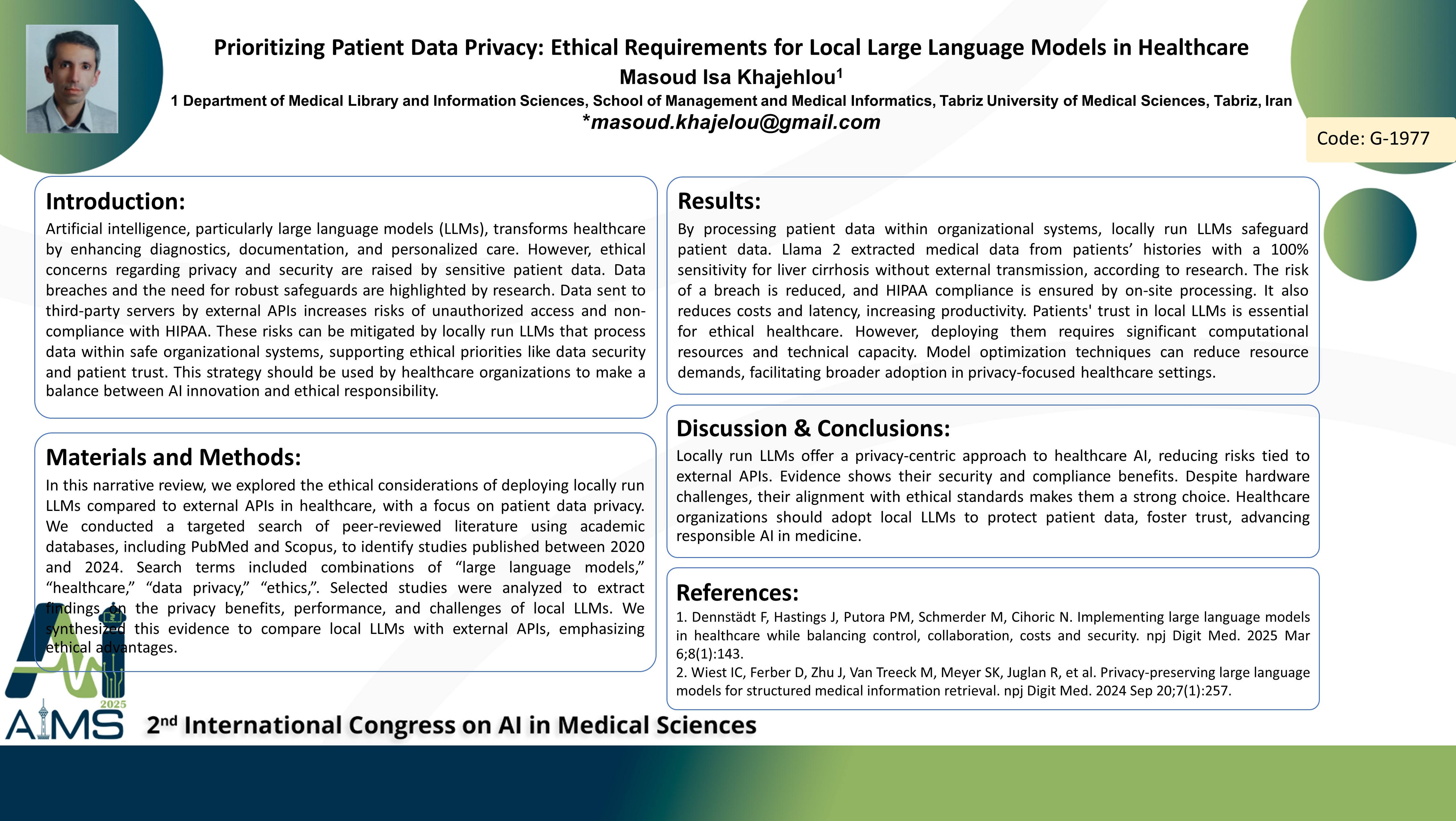اولویتبندی حریم خصوصی دادههای بیمار: الزامات اخلاقی برای مدلهای زبان بزرگ محلی در مراقبتهای بهداشتی
کد: G-1977
نویسندگان: Masoud Isa Khajehlou * ℗
زمان بندی: زمان بندی نشده!
برچسب: سیستم های تصمیم یار بالینی
دانلود: دانلود پوستر
خلاصه مقاله:
خلاصه مقاله
Background and aims: Artificial intelligence, particularly large language models (LLMs), transforms healthcare by enhancing diagnostics, documentation, and personalized care. However, ethical concerns regarding privacy and security are raised by sensitive patient data. Data breaches and the need for robust safeguards are highlighted by research. Data sent to third-party servers by external APIs increases risks of unauthorized access and non-compliance with HIPAA. These risks can be mitigated by locally run LLMs that process data within safe organizational systems, supporting ethical priorities like data security and patient trust. This strategy should be used by healthcare organizations to make a balance between AI innovation and ethical responsibility. Method: In this narrative review, we explored the ethical considerations of deploying locally run LLMs compared to external APIs in healthcare, with a focus on patient data privacy. We conducted a targeted search of peer-reviewed literature using academic databases, including PubMed and Scopus, to identify studies published between 2020 and 2024. Search terms included combinations of “large language models,” “healthcare,” “data privacy,” “ethics,”. Selected studies were analyzed to extract findings on the privacy benefits, performance, and challenges of local LLMs. We synthesized this evidence to compare local LLMs with external APIs, emphasizing ethical advantages. Results: By processing patient data within organizational systems, locally run LLMs safeguard patient data. Llama 2 extracted medical data from patients’ histories with a 100% sensitivity for liver cirrhosis without external transmission, according to research. The risk of a breach is reduced and HIPAA compliance is ensured by on-site processing. It also reduces costs and latency, increasing productivity. Patients' trust in local LLMs is essential for ethical healthcare. However, deploying them requires significant computational resources and technical capacity. Model optimization techniques can reduce resource demands, facilitating broader adoption in privacy-focused healthcare settings. Conclusion: Locally run LLMs offer a privacy-centric approach to healthcare AI, reducing risks tied to external APIs. Evidence shows their security and compliance benefits. Despite hardware challenges, their alignment with ethical standards makes them a strong choice. Healthcare organizations should adopt local LLMs to protect patient data, foster trust, advancing responsible AI in medicine.
کلمات کلیدی
Artificial Intelligence, Large Language Models, Patient
